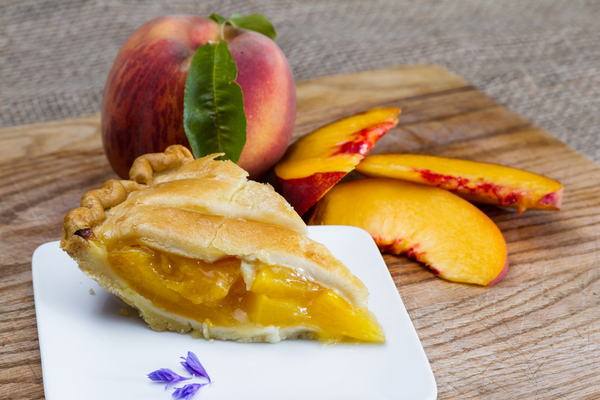In order for their fruit to fully develop, peach trees need around 1,100 “chill hours” during the winter, during which temperatures stay between 32 and 45 degrees Fahrenheit. Unfortunately for peach growers and peach lovers, this year’s crop only accumulated around 730 chill hours during the winter. But according to the Atlanta Journal-Constitution, this past winter was one of the hottest in Georgia in the 129 years that temperature records have been kept, with February temperatures averaging around 58.2 degrees.
Those uncharacteristically warm days caused the peaches to start developing earlier (and faster) than usual, which meant that the fruits were significantly hurt by two below-freezing cold snaps in March.
Dr. Gregory Reighard, a visiting professor of horticulture at Clemson University told Georgia ABC Affiliate WJCL that both Georgia and South Carolina — another massive peach-producing state — both endured their most devastating winters this decade. “It’s the worst year since 2007 I think for South Carolina where we had an Easter freeze. It’s definitely the worst for Georgia since 2017,” he told Georgia news outlet WJCL.
Agriculture experts have slightly differed in their estimates, but most believe that Georgia lost between 80 and 90 percent of its peach crop this year, while South Carolina growers may have lost anywhere between 50 and 75 percent of their crops. Georgia and South Carolina are among the top three peach producers in the United States. (Last year, California claimed 475,000 tons of peaches, followed by South Carolina’s 67,400 tons, and Georgia’s 24,800.)
“We’ve had some off crops, some bad years, but we hadn’t had anything like this since 1955” Lawton Pearson, a fifth-generation peach farmer at Georgia’s Pearson Farm, told the Washington Post. “We just don’t have a peach crop.”
Sean Lennon, a farmer at Georgia peach grower Fitzgerald Farms echoed that sentiment. “I was talking to [an older farmer] and he said 1955 was the last time he saw it this bad,” he told CNN. “It’s a financial loss, but it’s much more than that.”
Because of the scarcity of that particular stone fruit, the prices of Georgia peaches have definitely increased this year. The prices on peaches sold at statewide farmers’ markets are almost double what they were last year, while organic peaches can be as much as $2 each, according to the New York Times. Meanwhile, wholesale peaches can be between $40-$60 per box, which is up from around $20 in better years.
So, the peaches that you’ll find in supermarket produce sections this summer will most likely come from California.
—
Photo Credit: Wollertz / Shutterstock.com
